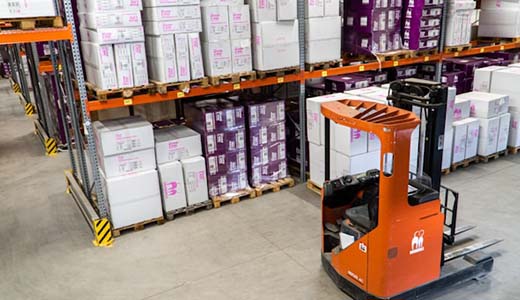What is best inventory management software?
The best inventory management software varies by business needs, but popular options include:
- TradeGecko (QuickBooks Commerce) - Great for e-commerce.
- Zoho Inventory - Affordable and feature-rich for small businesses.
- NetSuite - Comprehensive for larger enterprises.
- Cin7 - Integrates inventory management with point-of-sale.
- Fishbowl - Strong manufacturing and warehouse capabilities.
Consider factors like ease of use, scalability, integration options, and customer support when selecting the right software for your business.
Applications of best inventory management software?
Best inventory management software is used in various applications, including retail for tracking stock levels, in warehouses for optimizing storage and order fulfillment, and in manufacturing for managing raw materials and finished goods. It aids in automating reordering processes, forecasting demand, and analyzing inventory turnover. Additionally, it supports e-commerce businesses by integrating with online platforms for real-time inventory updates and improved customer experience. Overall, these systems enhance efficiency, reduce costs, and ensure optimal stock availability across different sectors.
Different types of best inventory management software?
There are several types of inventory management software tailored to different business needs:
- Cloud-Based Solutions: Accessible from anywhere, ideal for remote teams (e.g., TradeGecko, Zoho Inventory).
- On-Premises Software: Installed locally, offering more control (e.g., Fishbowl Inventory).
- Enterprise Resource Planning (ERP): Comprehensive systems with integrated inventory management (e.g., SAP, Oracle).
- Retail-Specific Software: Tailored for retail businesses with features like POS integration (e.g., Vend, Lightspeed).
- Small Business Solutions: Affordable, user-friendly options for small enterprises (e.g., Square, QuickBooks).
Technology used for best inventory management software?
The best inventory management software typically leverages technologies such as cloud computing for real-time accessibility, artificial intelligence for predictive analytics, and IoT for tracking inventory levels. Integration with ERP systems enhances data coherence, while mobile applications provide on-the-go management. Barcoding and RFID technologies enable efficient tracking and stocktaking. Additionally, analytics tools help in decision-making by offering insights into inventory trends and performance. Together, these technologies optimize inventory control, reduce costs, and improve operational efficiency.






